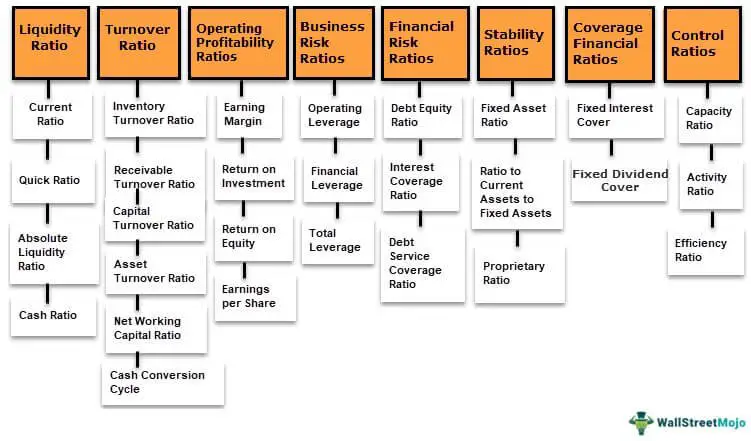Living in a city can be an exciting and dynamic experience, but it can also take a toll on your finances. However, fear not! I’ve got you covered on how to save money while living in a city. From practical tips and tricks to savvy strategies, this article will help you navigate the urban landscape without draining your bank account. So, whether you’re a city dweller looking to cut costs or a soon-to-be resident planning ahead, keep reading for valuable insights on how to save money while living in a city.
How to Save Money While Living in a City
Living in a city can be an exhilarating experience, but it often comes with a higher cost of living. From rent and transportation to dining out and entertainment, expenses can quickly add up. However, with careful planning and smart choices, it is possible to save money while enjoying the perks of city life. In this article, we will explore various strategies and tips to help you save money without compromising on your urban lifestyle.
1. Budgeting is Key
Establishing a budget is essential for managing your finances and saving money, regardless of where you live. To create an effective budget while living in a city:
- Track your expenses: Start by documenting all your monthly expenses, including rent, utilities, transportation, groceries, dining out, entertainment, and any other recurring costs.
- Identify areas for cuts: Review your spending habits and look for areas where you can reduce expenses. This could be minimizing dining out, finding cheaper transportation options, or cutting back on subscription services.
- Set savings goals: Determine how much money you want to save each month and allocate a portion of your income towards it. Make your savings a priority and adjust your budget accordingly.
- Use budgeting apps: Take advantage of budgeting apps such as Mint or PocketGuard that can help you track your expenses, set financial goals, and provide valuable insights into your spending habits.
2. Rethink Your Housing Options
One of the most significant expenses when living in a city is housing. Consider the following strategies to save money on housing:
- Roommates or house-sharing: Sharing your living space with roommates can significantly reduce your monthly rent and utility costs. Consider searching for roommate opportunities or explore house-sharing platforms to find like-minded individuals.
- Downsize or relocate: If your current housing situation is stretching your budget, consider downsizing to a smaller, more affordable apartment. Alternatively, explore neighborhoods outside the city center where rent tends to be cheaper.
- Negotiate rent: When renewing your lease or searching for a new place, don’t be afraid to negotiate the rent. Depending on the market conditions and your negotiation skills, you may be able to secure a lower monthly rent or additional amenities.
3. Optimize Transportation Costs
Transportation expenses can quickly eat into your budget, especially in a city where commuting is a daily necessity. Here are some tips to save money on transportation:
- Use public transportation: Take advantage of the city’s public transportation system, such as buses, trains, or trams. Monthly or annual passes often offer significant savings compared to daily ticket purchases.
- Bike or walk: If feasible, consider biking or walking for shorter distances instead of relying on public transportation or driving. Not only will it save you money, but it will also contribute to your overall health and well-being.
- Carpool or rideshare: Consider carpooling with colleagues or neighbors to share the costs of commuting. Additionally, explore ridesharing services like UberPool or Lyft Line that allow you to split the fare with other passengers heading in the same direction.
4. Cook at Home and Meal Planning
Eating out can quickly drain your finances, but that doesn’t mean you have to sacrifice delicious meals. Consider the following strategies to save money on food:
- Cook at home: Don’t underestimate the power of home-cooked meals. Cooking your meals allows you to control the ingredients, portion sizes, and save money compared to eating out.
- Meal planning: Plan your meals for the week in advance and create a shopping list based on those meal plans. This helps you avoid impulse food purchases and reduces food waste.
- Buy in bulk: Buying items in bulk can often be more cost-effective, especially for non-perishable items like rice, pasta, or canned goods. Look for discounts and sales in grocery stores to stock up on essentials.
5. Take Advantage of Free or Low-Cost Entertainment
City life offers a plethora of entertainment options, but they can be expensive. However, there are plenty of ways to enjoy the city without breaking the bank:
- Explore free events: Many cities host free events such as concerts, festivals, art exhibitions, or outdoor movie screenings. Check local event listings and city websites to stay updated on upcoming free events.
- Visit museums and galleries during discounted hours: Many museums and galleries offer discounted or even free admission during certain hours or days of the week. Take advantage of these opportunities to explore art and culture without spending a fortune.
- Enjoy outdoor activities: Parks, hiking trails, and beaches are often free or have minimal admission fees. Take advantage of these natural spaces to enjoy outdoor activities such as picnicking, hiking, or swimming.
6. Prioritize Debt Repayment and Avoid High-Interest Debt
Managing debt is crucial for saving money and achieving financial stability. Follow these tips to prioritize debt repayment and avoid high-interest debt:
- Create a debt repayment plan: If you have credit card debt or loans, prioritize paying them off by creating a repayment plan. Allocate a certain amount of your income towards debt repayment each month and stick to it.
- Avoid high-interest debt: Be cautious when using credit cards or taking on new loans. High-interest debt can quickly accumulate and become a burden on your finances. Always consider the interest rates and terms before taking on new debt.
- Consider debt consolidation: If you have multiple debts with high-interest rates, exploring debt consolidation options may help streamline your payments and potentially reduce your interest rates.
7. Cut Down on Subscription Services
Subscription services can be convenient, but they can also add up quickly, eating into your budget. Here’s how you can save money on subscriptions:
- Review your subscriptions: Take a closer look at all your subscriptions, including streaming services, gym memberships, music platforms, or monthly box services. Assess if you are utilizing them enough to justify the monthly cost.
- Cancel unused subscriptions: If you find that you’re not fully utilizing a subscription, consider canceling it. You can always resubscribe in the future if you find it necessary.
- Share subscriptions: Consider sharing subscription costs with family or friends. For example, you can split the cost of a streaming service and share the login credentials.
Living in a city doesn’t have to drain your finances. By adopting smart money-saving strategies, you can enjoy all the perks of city life while building your savings. Budgeting, optimizing housing and transportation costs, cooking at home, and taking advantage of free entertainment are just a few ways to save money in a city. Remember, every small saving adds up over time and can help you achieve your financial goals. So go ahead and embrace a frugal lifestyle while making the most of your urban adventure.
Living in a Big City and Saving Money
Frequently Asked Questions
Frequently Asked Questions (FAQs)
How can I save money while living in a city?
Living in a city can be expensive, but with some smart choices and budgeting, you can save money. Here are some tips to help you:
1. How can I reduce my housing costs?
Consider finding roommates to split the rent or explore smaller apartments or shared housing options. Additionally, look for neighborhoods that are more affordable or consider living slightly outside the city center.
2. What are some ways to save on transportation expenses?
Opt for public transportation or ride-sharing services instead of owning a car. If possible, bike or walk to nearby destinations. Plan your trips efficiently to save on fuel costs and consider carpooling with colleagues or friends.
3. How can I save on food expenses in a city?
Plan your meals ahead and cook at home instead of eating out regularly. Look for local farmers’ markets or discount grocery stores for fresh produce at lower prices. Buying in bulk and preparing meals in advance can also help save money.
4. What are some tips for reducing entertainment expenses?
Explore free or low-cost activities in your city, such as parks, museums with discounted admission days, or community events. Take advantage of online deals or use loyalty programs for discounts on movies, concerts, or other entertainment options.
5. How can I save on utility bills while living in a city?
Conserve energy by using LED light bulbs, turning off lights and electronics when not in use, and adjusting your thermostat to save on heating and cooling costs. Consider using energy-efficient appliances and insulate your home to reduce energy consumption.
6. Are there any ways to save on healthcare expenses?
Research and compare healthcare providers to find the most affordable options. Consider using generic medications instead of brand-name ones and explore health insurance plans or programs that cater to your specific needs.
7. What strategies can I use to save money on shopping?
Before making a purchase, compare prices, look for sales or discounts, and consider buying second-hand items. Create a shopping list and stick to it to avoid impulse buying. Additionally, unsubscribe from marketing emails to resist unnecessary temptations.
8. How can I save on gym or fitness expenses in a city?
Look for budget-friendly fitness options, such as community centers or outdoor workout areas. Utilize free workout videos or apps for home exercises. Consider joining social sports groups or participating in free fitness events in your city.
Remember, saving money in a city requires conscious decision-making and prioritizing your expenses. By adopting these tips and developing good financial habits, you can successfully save money while enjoying city life.
Final Thoughts
To save money while living in a city, there are several practical steps you can take. First, create a budget and stick to it, tracking your expenses closely. Find affordable housing options by considering roommates or renting in less expensive neighborhoods. Take advantage of public transportation or walk instead of relying on expensive car costs. Cook meals at home rather than eating out and seek out free or low-cost entertainment options. Comparison shop for essentials and use coupons or discounts whenever possible. By adopting these strategies, you can successfully save money while living in a city.



